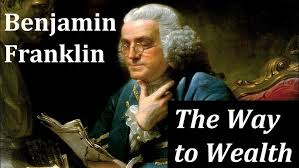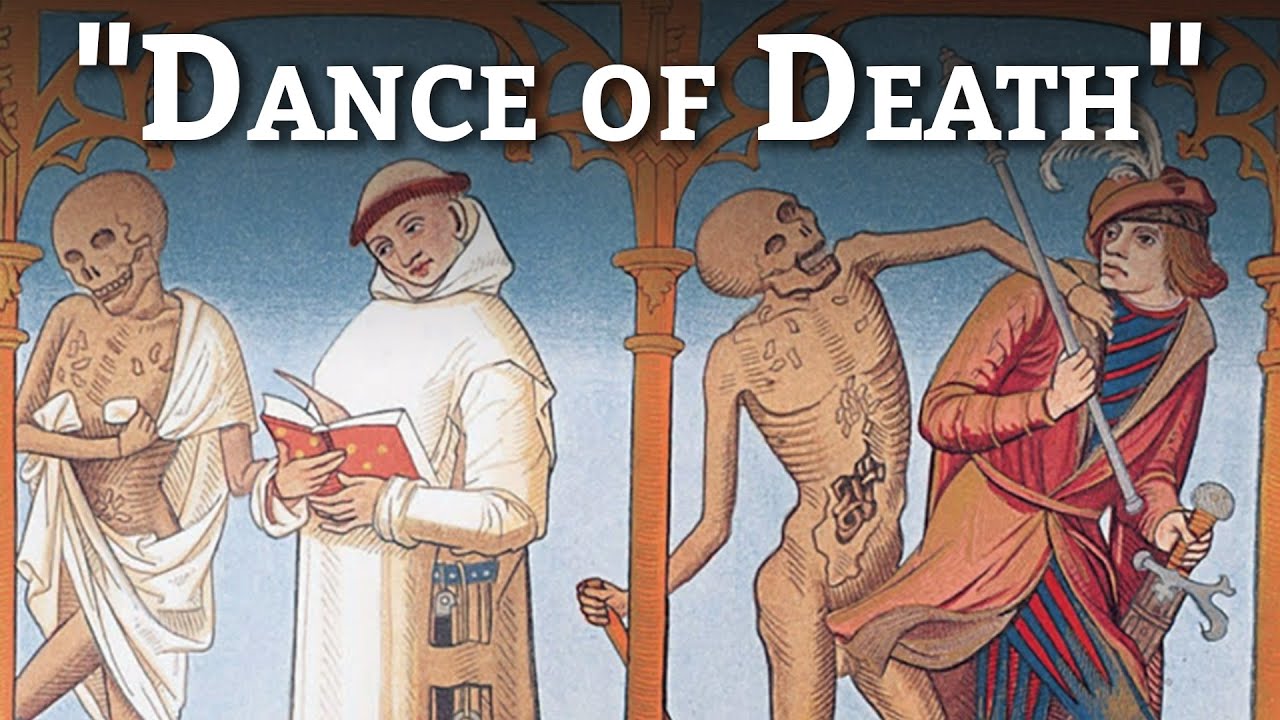The Son of Tarzan
Chapter 1
Catagory:Reading
Author:Edgar Rice Burroughs
Posted Date:02/25/2025
Posted By:utopia online
The long boat of the Marjorie W. was floating down the broad Ugambi with ebb tide and current. Her crew were lazily enjoying this respite from the arduous labor of rowing up stream. Three miles below them lay the Marjorie W. herself, quite ready to sail so soon as they should have clambered aboard and swung the long boat to its davits. Presently the attention of every man was drawn from his dreaming or his gossiping to the northern bank of the river. There, screaming at them in a cracked falsetto and with skinny arms outstretched, stood a strange apparition of a man. “Wot the ’ell?” ejaculated one of the crew. “A white man!” muttered the mate, and then: “Man the oars, boys, and we’ll just pull over an’ see what he wants.” When they came close to the shore they saw an emaciated creature with scant white locks tangled and matted. The thin, bent body was naked but for a loin cloth. Tears were rolling down the sunken pock-marked cheeks. The man jabbered at them in a strange tongue. “Rooshun,” hazarded the mate. “Savvy English?” he called to the man.
He did, and in that tongue, brokenly and haltingly, as though it had been many years since he had used it, he begged them to take him with them away from this awful country. Once on board the Marjorie W. the stranger told his rescuers a pitiful tale of privation, hardships, and torture, extending over a period of ten years. How he happened to have come to Africa he did not tell them, leaving them to assume he had forgotten the incidents of his life prior to the frightful ordeals that had wrecked him mentally and physically. He did not even tell them his true name, and so they knew him only as Michael Sabrov, nor was there any resemblance between this sorry wreck and the virile, though unprincipled, Alexis Paulvitch of old.
It had been ten years since the Russian had escaped the fate of his friend, the arch-fiend Rokoff, and not once, but many times during those ten years had Paulvitch cursed the fate that had given to Nicholas Rokoff death and immunity from suffering while it had meted to him the hideous terrors of an existence infinitely worse than the death that persistently refused to claim him.
Paulvitch had taken to the jungle when he had seen the beasts of Tarzan and their savage lord swarm the deck of the Kincaid, and in his terror lest Tarzan pursue and capture him he had stumbled on deep into the jungle, only to fall at last into the hands of one of the savage cannibal tribes that had felt the weight of Rokoff’s evil temper and cruel brutality. Some strange whim of the chief of this tribe saved Paulvitch from death only to plunge him into a life of misery and torture. For ten years he had been the butt of the village, beaten and stoned by the women and children, cut and slashed and disfigured by the warriors; a victim of often recurring fevers of the most malignant variety. Yet he did not die. Smallpox laid its hideous clutches upon him; leaving him unspeakably branded with its repulsive marks. Between it and the attentions of the tribe the countenance of Alexis Paulvitch was so altered that his own mother could not have recognized in the pitiful mask he called his face a single familiar feature. A few scraggly, yellow-white locks had supplanted the thick, dark hair that had covered his head. His limbs were bent and twisted, he walked with a shuffling, unsteady gait, his body doubled forward. His teeth were gone—knocked out by his savage masters. Even his mentality was but a sorry mockery of what it once had been.
They took him aboard the Marjorie W., and there they fed and nursed him. He gained a little in strength; but his appearance never altered for the better—a human derelict, battered and wrecked, they had found him; a human derelict, battered and wrecked, he would remain until death claimed him. Though still in his thirties, Alexis Paulvitch could easily have passed for eighty. Inscrutable Nature had demanded of the accomplice a greater penalty than his principal had paid.
In the mind of Alexis Paulvitch there lingered no thoughts of revenge—only a dull hatred of the man whom he and Rokoff had tried to break, and failed. There was hatred, too, of the memory of Rokoff, for Rokoff had led him into the horrors he had undergone. There was hatred of the police of a score of cities from which he had had to flee. There was hatred of law, hatred of order, hatred of everything. Every moment of the man’s waking life was filled with morbid thought of hatred—he had become mentally as he was physically in outward appearance, the personification of the blighting emotion of Hate. He had little or nothing to do with the men who had rescued him. He was too weak to work and too morose for company, and so they quickly left him alone to his own devices.
The Marjorie W. had been chartered by a syndicate of wealthy manufacturers, equipped with a laboratory and a staff of scientists, and sent out to search for some natural product which the manufacturers who footed the bills had been importing from South America at an enormous cost. What the product was none on board the Marjorie W. knew except the scientists, nor is it of any moment to us, other than that it led the ship to a certain island off the coast of Africa after Alexis Paulvitch had been taken aboard.
The ship lay at anchor off the coast for several weeks. The monotony of life aboard her became trying for the crew. They went often ashore, and finally Paulvitch asked to accompany them—he too was tiring of the blighting sameness of existence upon the ship.
The island was heavily timbered. Dense jungle ran down almost to the beach. The scientists were far inland, prosecuting their search for the valuable commodity that native rumor upon the mainland had led them to believe might be found here in marketable quantity. The ship’s company fished, hunted, and explored. Paulvitch shuffled up and down the beach, or lay in the shade of the great trees that skirted it. One day, as the men were gathered at a little distance inspecting the body of a panther that had fallen to the gun of one of them who had been hunting inland, Paulvitch lay sleeping beneath his tree. He was awakened by the touch of a hand upon his shoulder. With a start he sat up to see a huge, anthropoid ape squatting at his side, inspecting him intently. The Russian was thoroughly frightened. He glanced toward the sailors—they were a couple of hundred yards away. Again the ape plucked at his shoulder, jabbering plaintively. Paulvitch saw no menace in the inquiring gaze, or in the attitude of the beast. He got slowly to his feet. The ape rose at his side.
Half doubled, the man shuffled cautiously away toward the sailors. The ape moved with him, taking one of his arms. They had come almost to the little knot of men before they were seen, and by this time Paulvitch had become assured that the beast meant no harm. The animal evidently was accustomed to the association of human beings. It occurred to the Russian that the ape represented a certain considerable money value, and before they reached the sailors he had decided he should be the one to profit by it.
When the men looked up and saw the oddly paired couple shuffling toward them they were filled with amazement, and started on a run toward the two. The ape showed no sign of fear. Instead he grasped each sailor by the shoulder and peered long and earnestly into his face. Having inspected them all he returned to Paulvitch’s side, disappointment written strongly upon his countenance and in his carriage.
The men were delighted with him. They gathered about, asking Paulvitch many questions, and examining his companion. The Russian told them that the ape was his—nothing further would he offer—but kept harping continually upon the same theme, “The ape is mine. The ape is mine.” Tiring of Paulvitch, one of the men essayed a pleasantry. Circling about behind the ape he prodded the anthropoid in the back with a pin. Like a flash the beast wheeled upon its tormentor, and, in the briefest instant of turning, the placid, friendly animal was metamorphosed to a frenzied demon of rage. The broad grin that had sat upon the sailor’s face as he perpetrated his little joke froze to an expression of terror. He attempted to dodge the long arms that reached for him; but, failing, drew a long knife that hung at his belt. With a single wrench the ape tore the weapon from the man’s grasp and flung it to one side, then his yellow fangs were buried in the sailor’s shoulder.
With sticks and knives the man’s companions fell upon the beast, while Paulvitch danced around the cursing, snarling pack mumbling and screaming pleas and threats. He saw his visions of wealth rapidly dissipating before the weapons of the sailors.
The ape, however, proved no easy victim to the superior numbers that seemed fated to overwhelm him. Rising from the sailor who had precipitated the battle he shook his giant shoulders, freeing himself from two of the men that were clinging to his back, and with mighty blows of his open palms felled one after another of his attackers, leaping hither and thither with the agility of a small monkey.
The fight had been witnessed by the captain and mate who were just landing from the Marjorie W., and Paulvitch saw these two now running forward with drawn revolvers while the two sailors who had brought them ashore trailed at their heels. The ape stood looking about him at the havoc he had wrought, but whether he was awaiting a renewal of the attack or was deliberating which of his foes he should exterminate first Paulvitch could not guess. What he could guess, however, was that the moment the two officers came within firing distance of the beast they would put an end to him in short order unless something were done and done quickly to prevent. The ape had made no move to attack the Russian but even so the man was none too sure of what might happen were he to interfere with the savage beast, now thoroughly aroused to bestial rage, and with the smell of new spilled blood fresh in its nostrils. For an instant he hesitated, and then again there rose before him the dreams of affluence which this great anthropoid would doubtless turn to realities once Paulvitch had landed him safely in some great metropolis like London.
The captain was shouting to him now to stand aside that he might have a shot at the animal; but instead Paulvitch shuffled to the ape’s side, and though the man’s hair quivered at its roots he mastered his fear and laid hold of the ape’s arm. “Come!” he commanded, and tugged to pull the beast from among the sailors, many of whom were now sitting up in wide eyed fright or crawling away from their conqueror upon hands and knees. Slowly the ape permitted itself to be led to one side, nor did it show the slightest indication of a desire to harm the Russian. The captain came to a halt a few paces from the odd pair. “Get aside, Sabrov!” he commanded. “I’ll put that brute where he won’t chew up any more able seamen.” “It wasn’t his fault, captain,” pleaded Paulvitch. “Please don’t shoot him. The men started it—they attacked him first. You see, he’s perfectly gentle—and he’s mine—he’s mine—he’s mine! I won’t let you kill him,” he concluded, as his half-wrecked mentality pictured anew the pleasure that money would buy in London—money that he could not hope to possess without some such windfall as the ape represented.
The captain lowered his weapon. “The men started it, did they?” he repeated. “How about that?” and he turned toward the sailors who had by this time picked themselves from the ground, none of them much the worse for his experience except the fellow who had been the cause of it, and who would doubtless nurse a sore shoulder for a week or so. “Simpson done it,” said one of the men. “He stuck a pin into the monk from behind, and the monk got him—which served him bloomin’ well right—an’ he got the rest of us, too, for which I can’t blame him, since we all jumped him to once.”
The captain looked at Simpson, who sheepishly admitted the truth of the allegation, then he stepped over to the ape as though to discover for himself the sort of temper the beast possessed, but it was noticeable that he kept his revolver cocked and leveled as he did so. However, he spoke soothingly to the animal who squatted at the Russian’s side looking first at one and then another of the sailors. As the captain approached him the ape half rose and waddled forward to meet him. Upon his countenance was the same strange, searching expression that had marked his scrutiny of each of the sailors he had first encountered. He came quite close to the officer and laid a paw upon one of the man’s shoulders, studying his face intently for a long moment, then came the expression of disappointment accompanied by what was almost a human sigh, as he turned away to peer in the same curious fashion into the faces of the mate and the two sailors who had arrived with the officers. In each instance he sighed and passed on, returning at length to Paulvitch’s side, where he squatted down once more; thereafter evincing little or no interest in any of the other men, and apparently forgetful of his recent battle with them.
When the party returned aboard the Marjorie W., Paulvitch was accompanied by the ape, who seemed anxious to follow him. The captain interposed no obstacles to the arrangement, and so the great anthropoid was tacitly admitted to membership in the ship’s company. Once aboard he examined each new face minutely, evincing the same disappointment in each instance that had marked his scrutiny of the others. The officers and scientists aboard often discussed the beast, but they were unable to account satisfactorily for the strange ceremony with which he greeted each new face. Had he been discovered upon the mainland, or any other place than the almost unknown island that had been his home, they would have concluded that he had formerly been a pet of man; but that theory was not tenable in the face of the isolation of his uninhabited island. He seemed continually to be searching for someone, and during the first days of the return voyage from the island he was often discovered nosing about in various parts of the ship; but after he had seen and examined each face of the ship’s company, and explored every corner of the vessel he lapsed into utter indifference of all about him. Even the Russian elicited only casual interest when he brought him food. At other times the ape appeared merely to tolerate him. He never showed affection for him, or for anyone else upon the Marjorie W., nor did he at any time evince any indication of the savage temper that had marked his resentment of the attack of the sailors upon him at the time that he had come among them.
Most of his time was spent in the eye of the ship scanning the horizon ahead, as though he were endowed with sufficient reason to know that the vessel was bound for some port where there would be other human beings to undergo his searching scrutiny. All in all, Ajax, as he had been dubbed, was considered the most remarkable and intelligent ape that any one aboard the Marjorie W. ever had seen. Nor was his intelligence the only remarkable attribute he owned. His stature and physique were, for an ape, awe inspiring. That he was old was quite evident, but if his age had impaired his physical or mental powers in the slightest it was not apparent.
And so at length the Marjorie W. came to England, and there the officers and the scientists, filled with compassion for the pitiful wreck of a man they had rescued from the jungles, furnished Paulvitch with funds and bid him and his Ajax Godspeed.
Upon the dock and all through the journey to London the Russian had his hands full with Ajax. Each new face of the thousands that came within the anthropoid’s ken must be carefully scrutinized, much to the horror of many of his victims; but at last, failing, apparently, to discover whom he sought, the great ape relapsed into morbid indifference, only occasionally evincing interest in a passing face. In London, Paulvitch went directly with his prize to a certain famous animal trainer. This man was much impressed with Ajax with the result that he agreed to train him for a lion’s share of the profits of exhibiting him, and in the meantime to provide for the keep of both the ape and his owner. And so came Ajax to London, and there was forged another link in the chain of strange circumstances that were to affect the lives of many people.


.jpg)














 👁 :52
👁 :52
 👁 :5
👁 :5
 👁 :33
👁 :33
 👁 :30
👁 :30
 👁 :43
👁 :43